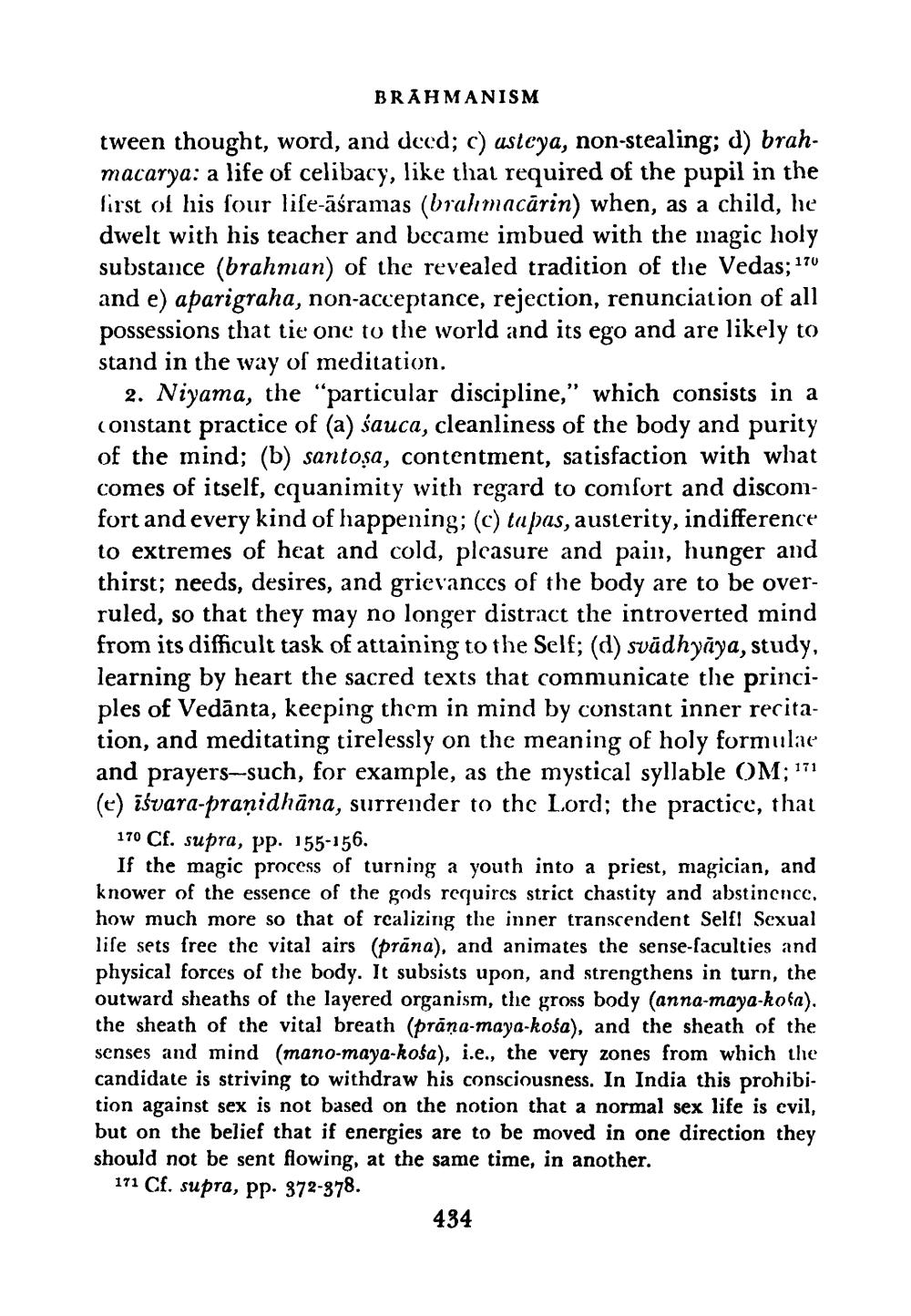________________
BRAHMANISM
tween thought, word, and deed; c) asteya, non-stealing; d) brahmacarya: a life of celibacy, like that required of the pupil in the first of his four life-āśramas (brahmacārin) when, as a child, he dwelt with his teacher and became imbued with the magic holy substance (brahman) of the revealed tradition of the Vedas; 170 and e) aparigraha, non-acceptance, rejection, renunciation of all possessions that tie one to the world and its ego and are likely to stand in the way of meditation.
2. Niyama, the “particular discipline," which consists in a constant practice of (a) sauca, cleanliness of the body and purity of the mind; (b) santoșa, contentment, satisfaction with what comes of itself, cquanimity with regard to comfort and discomfort and every kind of happening; (c) tupas, austerity, indifference to extremes of heat and cold, pleasure and pain, hunger and thirst; needs, desires, and grievances of the body are to be overruled, so that they may no longer distract the introverted mind from its difficult task of attaining to the Self; (d) svādhyāya, study, learning by heart the sacred texts that communicate the principles of Vedānta, keeping them in mind by constant inner recitation, and meditating tirelessly on the meaning of holy formulae and prayers-such, for example, as the mystical syllable OM; 171 (e) īśvara-praạidhāna, surrender to the Lord; the practice, that
170 Cf. supra, pp. 155-156.
If the magic process of turning a youth into a priest, magician, and knower of the essence of the gods requires strict chastity and abstinence, how much more so that of realizing the inner transcendent Selfl Sexual lise sets free the vital airs (prāna), and animates the sense-faculties and physical forces of the body. It subsists upon, and strengthens in turn, the outward sheaths of the layered organism, the gross body (anna-maya-kota). the sheath of the vital breath (prana-maya-kośa), and the sheath of the senses and mind (mano-maya-kośa), i.e., the very zones from which the candidate is striving to withdraw his consciousness. In India this prohibition against sex is not based on the notion that a normal sex life is evil, but on the belief that if energies are to be moved in one direction they should not be sent flowing, at the same time, in another. 171 Cf. supra, pp. 372-378.
434




